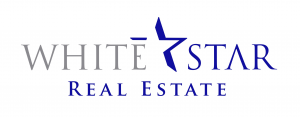Central and Eastern European countries intensify fight against tax evasion, they are also focusing on transfer pricing
29.07.2016Company: Forvis Mazars s.r.o.
Mazars CEE Tax Guide 2016: The tax systems of 19 countries in the region are stable, the inspection of cross-border transactions and transfer pricing is becoming stricter.
In 2016, unlike in past years, the attention of the states in the CEE region has shifted to themes of the importance of the regulation of cross-border transactions and the fight against tax evasion. Many countries are fighting with the grey economy by strengthening control mechanisms. The Czech Republic is strengthening controls in the area of transfer pricing, has introduced an inspection report for VAT payers and is planning the electronic records of sales for businesses. This follows from the study entitled Mazars CEE Tax Guide 2016.
“In the last two years the CEE region countries have been resolving the two currently hottest topics – the increased control of cross-border transactions and they grey economy. Unfortunately, in addition to positive effects, these countries’ fight against tax evasion also brings a high administrative burden for companies. One such measure, for example, is the introduction of the inspection report for VAT payers to Czech officials,” stated Pavel Klein, the Leading Partner of Mazars’ Tax Department.
The greatest tax burden for entrepreneurs is in Greece
As the study shows, the state that currently has the highest taxes in the region is unequivocally Greece. In relation to the discussions with its creditors and in accordance with the European stabilisation programme, in the last few months Greece has begun significant reforms of its tax system. This year it increased the corporate income tax from the original 26% to the current 29% and it expanded the solidarity tax rate (the maximum rate was increased from 2.8% to 8%). Greece, as the country with the highest corporate tax rate in the region, is followed by Austria with 25% and Slovakia with 22%.
At 19% the Czech Republic is slightly above average. The new Slovak government is also planning changes to the tax system. It wants to lower the corporate income tax to 21% from the current 22% starting from 2017.
Slovakia pays the highest tax per employee, while the most expensive employees are in Austria
From the perspective of the amount of the personal income tax and the payments to social and health insurance, which are often decisive factors for investors when considering the workforce expenses, it follows that in the CEE region this burden is stable or decreasing in the individual countries. The country with the highest taxation of work (the total amount of the tax and insurance/the total expenses per employee) continues to be Austria (49.5%) and Hungary (49%).
Ukraine made a considerable change in personal income tax, raising the tax from 15% to 18%. It is necessary, however, to perceive this in the context of the past tax reform, which decreased the price for work to a considerable extent, with social security payments dropping from 36.7% to a mere 22%.
The average wages in the private sector are the highest in Austria (2 300 EUR), which is far above the regional average (888 EUR). Other countries surpassing the average are Slovenia (1 679 EUR), Croatia (1 077 EUR), Estonia (1 045 EUR), the Czech Republic (1 000 EUR), Poland (934 EUR), Slovakia (902 EUR) and Greece (1.243 EUR), though the wages in the private sector are continuing to decrease in Greece. Apart from Austria (1 630 EUR), employees collect the highest minimum wages in Slovenia (791 EUR), Greece (586 EUR), Estonia (430 EUR), Poland (420 EUR) and Croatia (411 EUR). Employees in Russia (73 EUR) and Ukraine (52 EUR) have the lowest minimum wages.
The fight against tax evasion
A sharply discussed theme of the countries in the region is the issue of tax evasion and tax fraud. In recent years many measures have been put into place to better monitor the taxation of cross-border transactions or transfer pricing. In the area of transfer pricing many countries have adopted the OECD Action Plan for the regulation of transfer prices from 2014 for their national legislation. For example in Estonia a law has been in effect from 2016 that imposes an obligation on companies to show the economic plan, managerial structure or location where the transaction was performed for each transaction in the area of transfer pricing.
The region’s countries have introduced stricter regulations in the area of VAT, as well, primarily with regards to reverse charges. The Czech Republic is one of these countries. “In 2016 an amendment to the Czech VAT Act came into effect, expanding the regime of reverse charges for the distribution of electricity and gas and the handover of real estate. These measures should help to avoid tax evasion and to ensure that the taxpayers do not avoid the payment of taxes,” added Pavel Klein, the Leading Partner of Mazars’ Tax Department.
Similar defence mechanisms operate in the other countries of the region as well. For example in Hungary the online registration of exported goods has been operating since last year. “In Hungary this measure has been seen to work and it is an effective weapon against VAT fraud. Nevertheless it must be said that it has also brought a huge administrative burden for companies, as well,” added Sándor Szmicsek, Mazar’s Tax Department Partner in Hungary. Russian officials have also introduced new measures in connection with a stricter control of the tax residency of companies and the requests of companies to limit double taxation. The tax administration in Slovakia is penalising taxpayers for supplementary tax returns and has passed measures related to the identification of payers through artificially-created structures in tax havens.
Many CEE countries have decided to fight radically against the grey economy by introducing online cash registers and electronic reporting. The Czech Republic intends to fight against the grey economy by, for example, introducing electronic records of sales (ERS). The Act introducing ERS was signed by the President at the end of March and its fate now depends on the decision of the Constitutional Court. ERS has already been introduced in the past by Bulgaria, Croatia, Hungary and Ukraine. Registered cash registers are used in Slovakia, though they are not monitored by the tax administration online.
Regulation of transfer pricing is becoming stricter throughout the region
Regulations in the area of transfer pricing is becoming stricter in practically all the countries of the region. There are tighter legislative rules in Croatia and Poliand, while managers in Poland even have criminal liability defined in relation to transfer pricing. In the Czech Republic the financial administration inspections have become stricter. According to its statistics it has brought 800 million crowns to the state coffers in the first half year, which is more than five times than in the last five years together. Compared to previous years the taxmen are targeting sure bets, while in the past they first checked to see if the company is evading taxes.´
Meanwhile the officials are mainly interested in the prices used by companies that have capital ties. “The approach of the financial administration is far stricter and practices that companies once got away with are not often a problem,” confirmed Vít Fritzsche, a Manager of the Mazars’ Tax Department.
____________________________________________________________________________
About Mazars:
Mazars is an international, integrated and independent organisation, specialising in audit, accountancy, tax, legal and advisory services. As of 1st January 2016, Mazars operates throughout the 77 countries that make up its integrated partnership. We draw on the expertise of 17,000 professionals to assist major international groups, SMEs, private investors and public bodies at every stage of their development.
Contact: Mazars, International Business Center, 186 00, Praha 8, Pobřežní 3
David Pilař, Marketing & Communication, david.pilar@mazars.cz, tel.: +420 604 100 491.
Tags: Finance |







